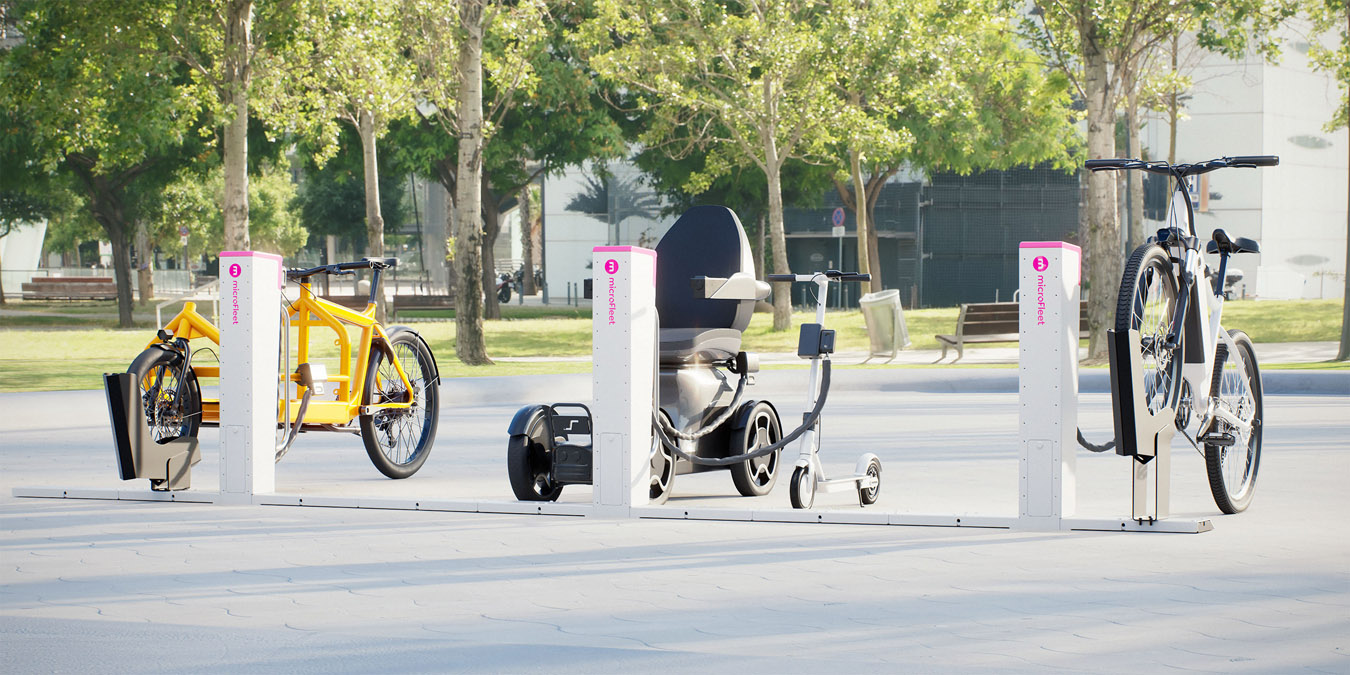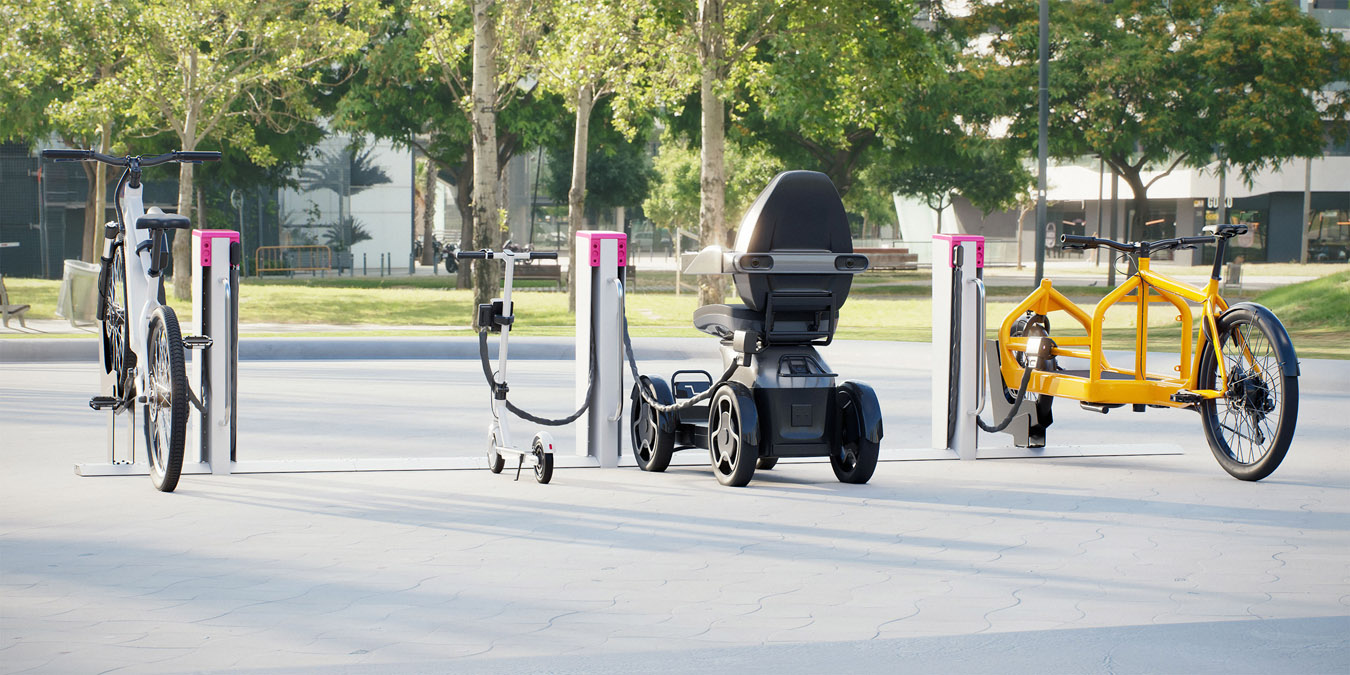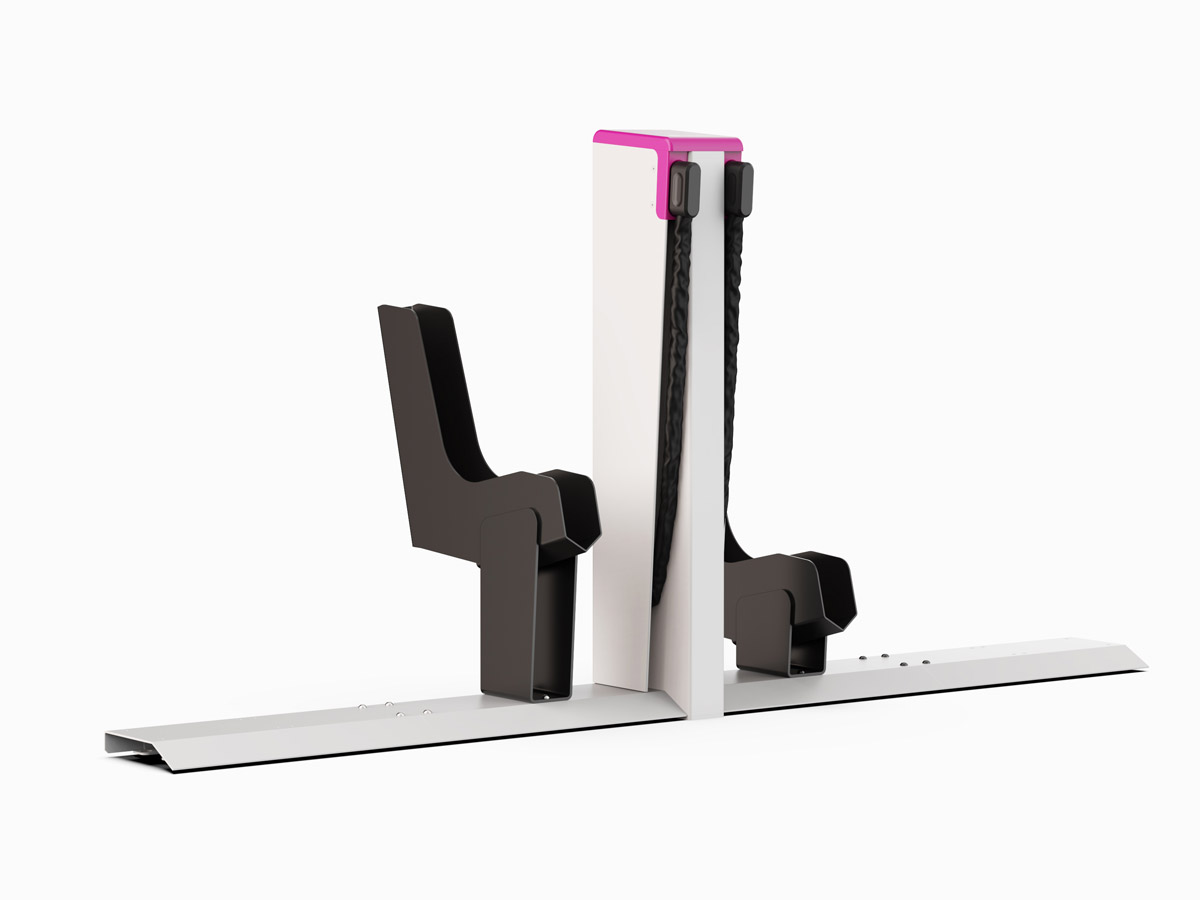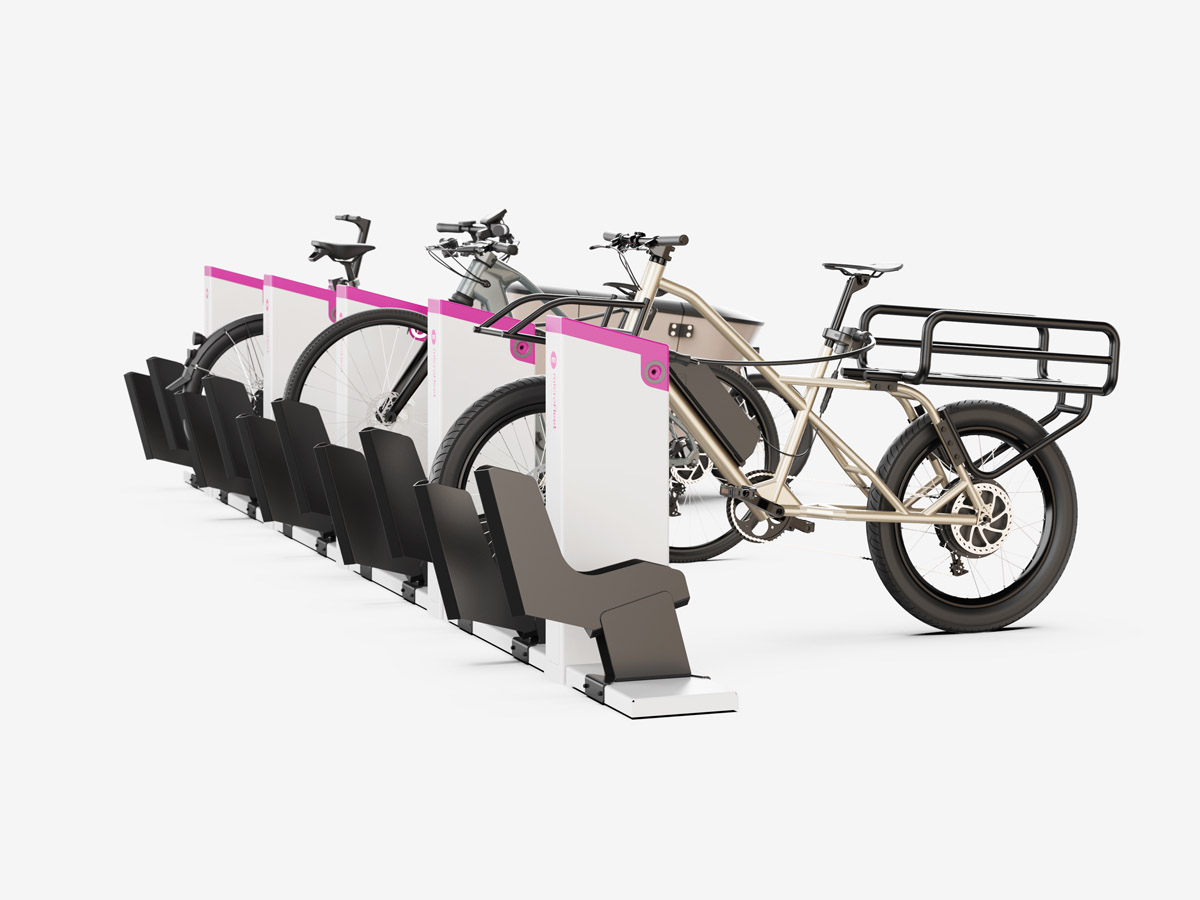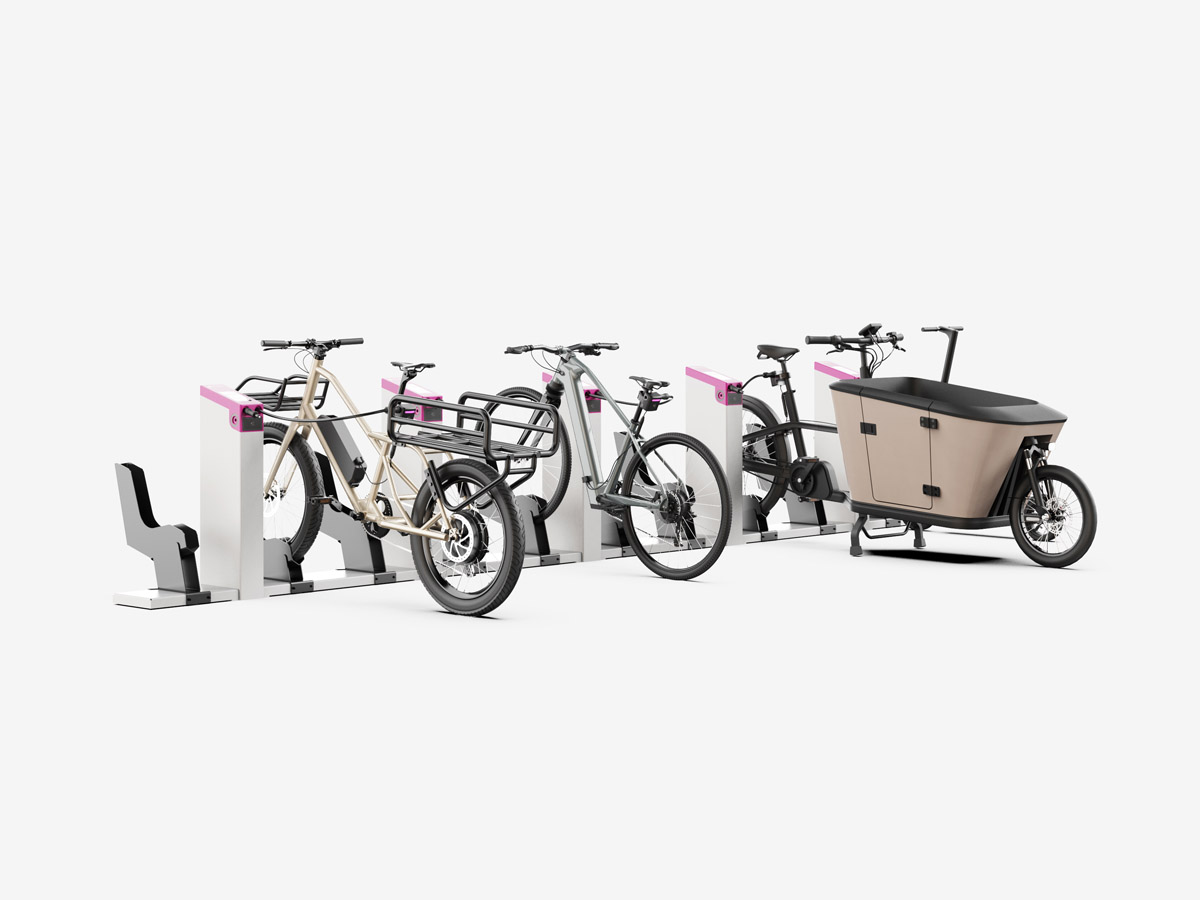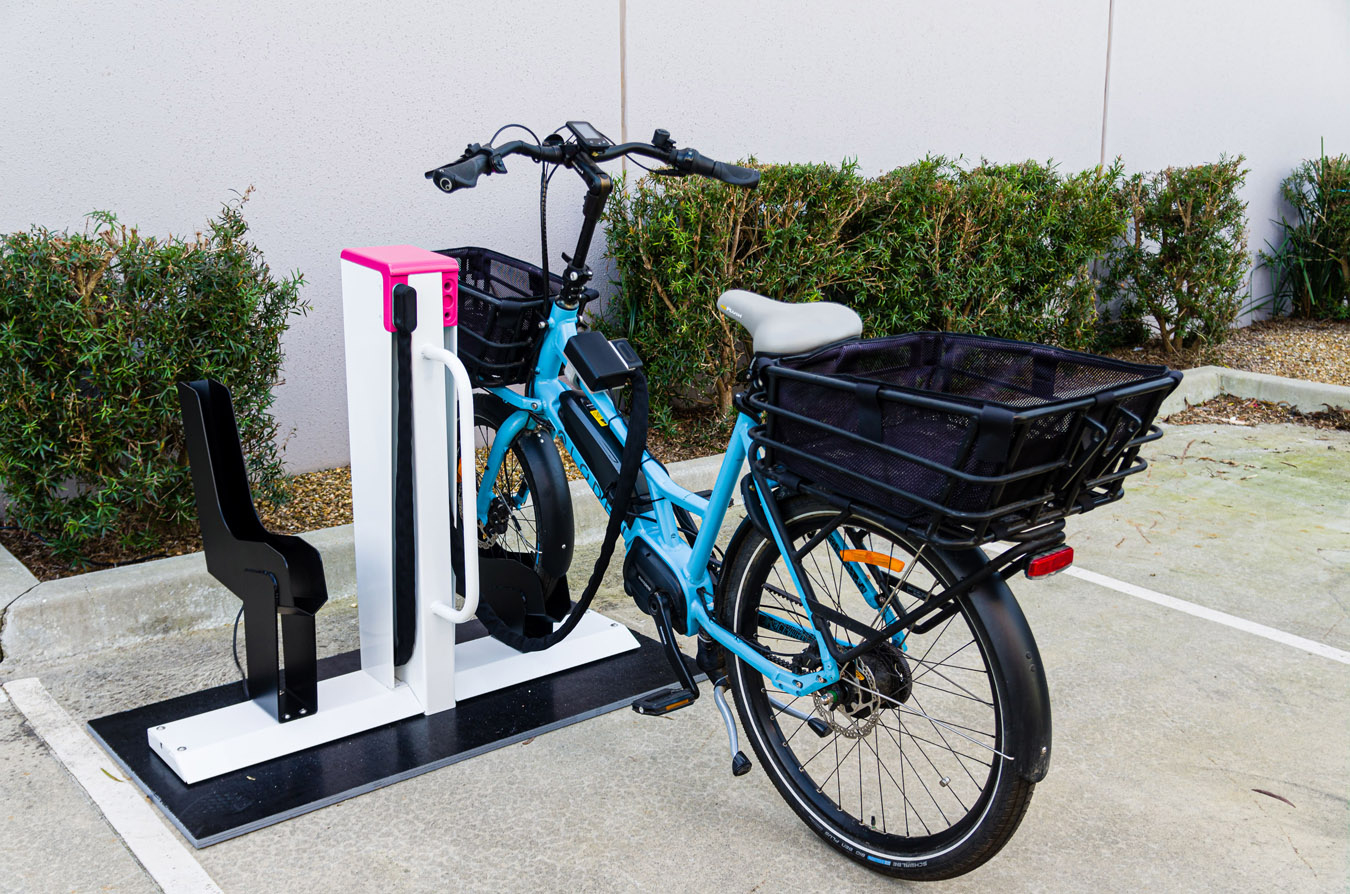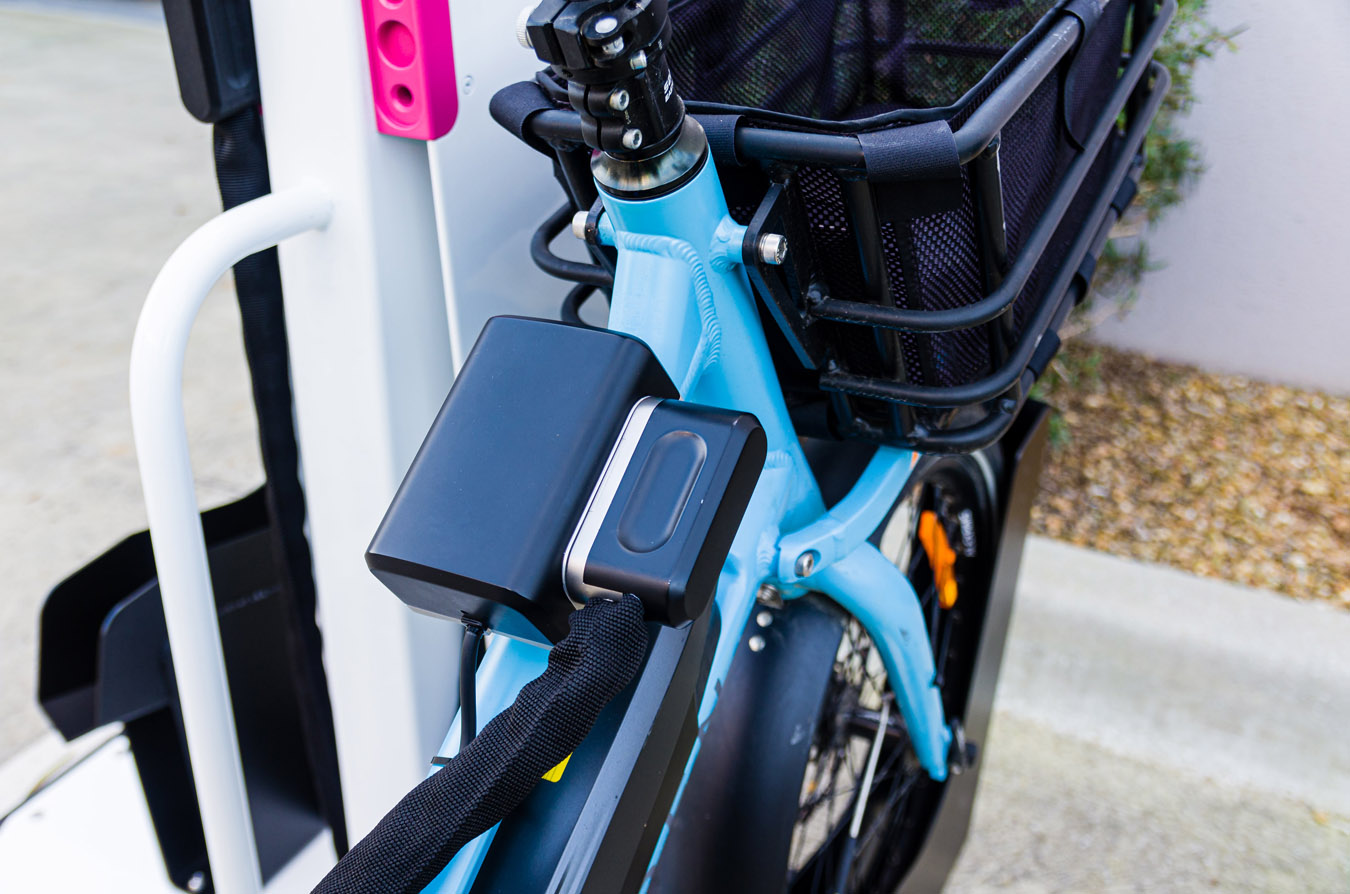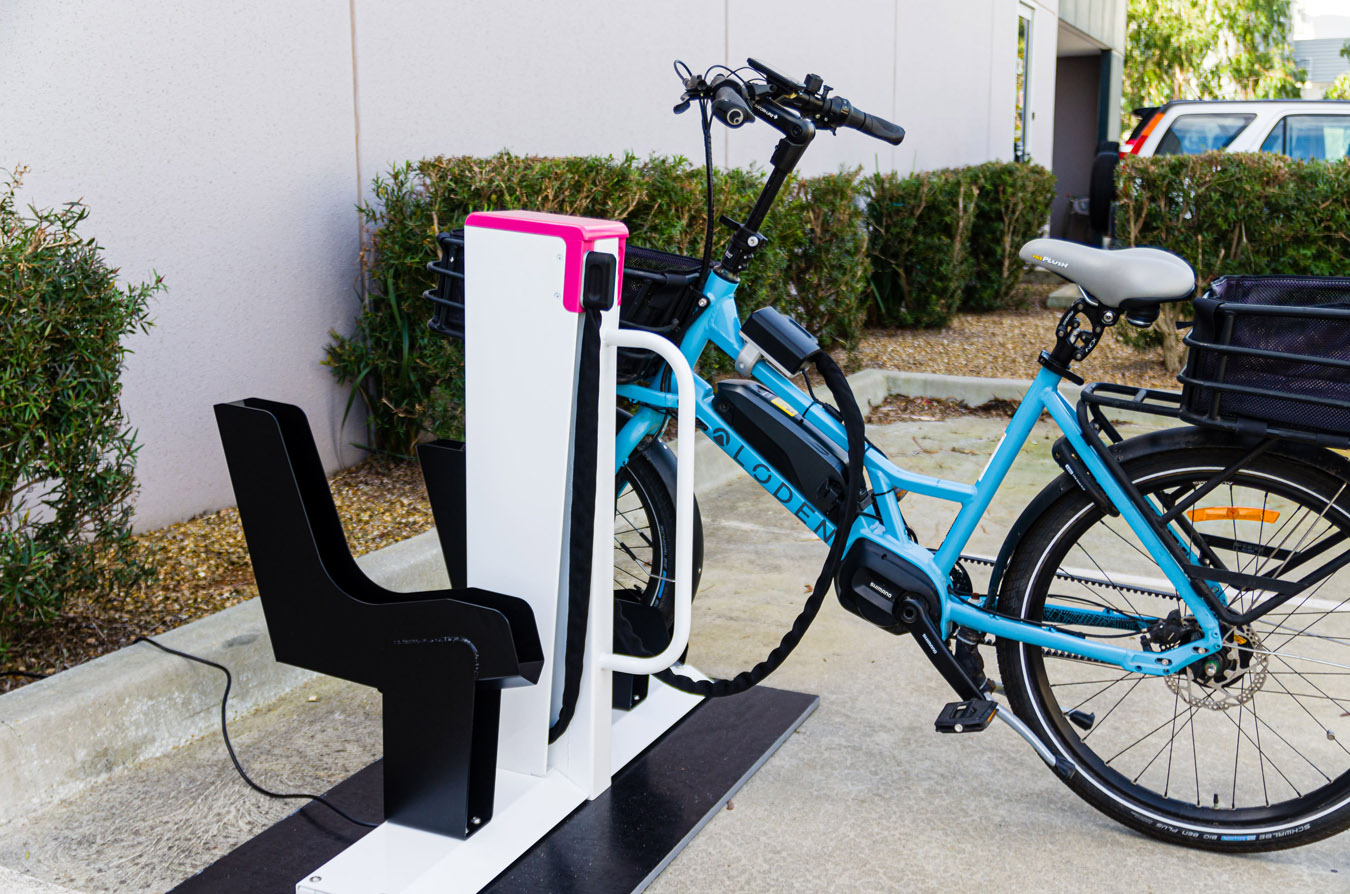Outerspace Design (OSD) led OneDock’s design and development in consultation with the client microFleet, using a traditional V-model process. This focussed on understanding user needs, commercial drivers, environmental and regulatory risk factors, and engineering and manufacturing requirements, before designing a solution that best balanced all these factors.
An early ‘proof of concept’ was designed and built to facilitate user trials, which in turn informed further refinements to the system design and engineering specifications. This work involved Systems, Electronics, Firmware and Mechanical Engineering disciplines, synthesised through an Industrial Design lens.
Further product iterations based on user feedback improved system functionality and incorporated Design for Manufacture and Design for Assembly principles. IOT devices and software solutions from leading international suppliers were also incorporated into the OneDock platform to provide full connectivity and optimise fleet operations.
The final product is attractive, practical, affordable and sustainable. It provides a flexible hardware and software platform which will enable many future variants of OneDock, exceeding microFleet’s expectations and the design brief (only one variant of the OneDock platform was expected to be delivered).
During the two-year development process, the design team continually incorporated emerging technologies such as compact IOT devices with V2E (vehicle-to-everything) functionality and new types of LEVs such as high capacity e-quadricycles. They also responded to changing regulations and market forces such as the legalisation of e-scooters in Victoria and the escalation of LEV battery fires from unregulated charging. This has enabled microfleet to secure a valuable first-to-market position in the burgeoning global micromobility charging sector.

